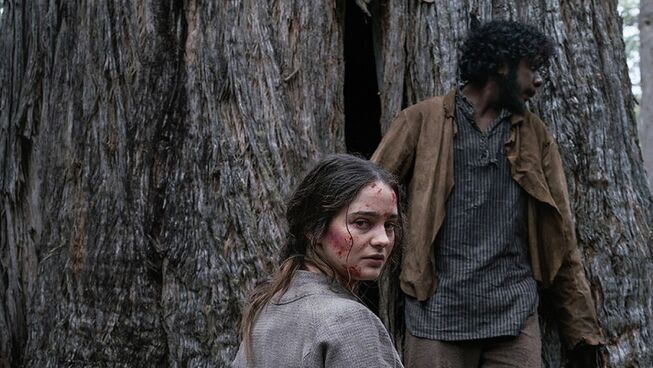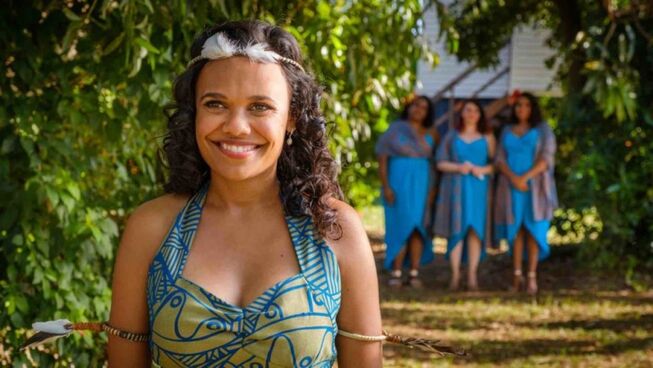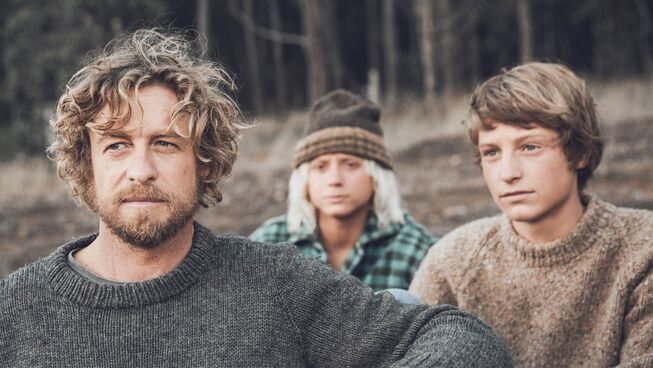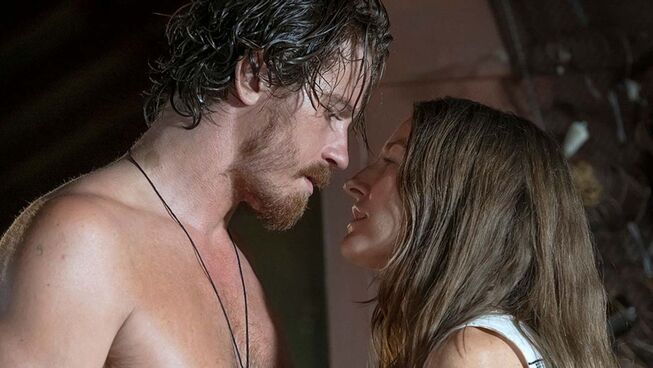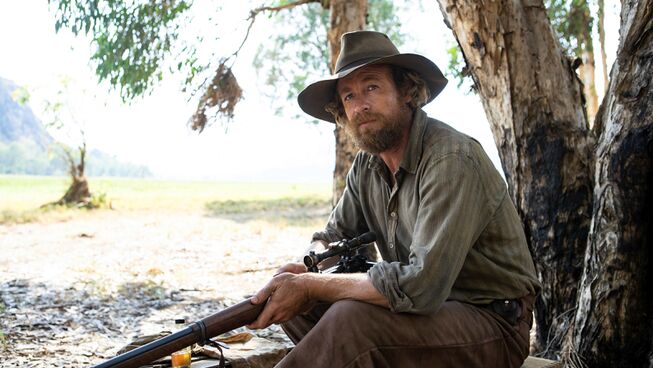
3 out of 5 stars
Australia manages to provide breathtaking landscapes that seduce filmmakers to venture into the outback to unearth its history. With the richness of the red soil, the extraordinary creatures, a vast array of twisted foliage and tones of the southern sky as a working canvas, this land proves to be mesmerising. Yet, as storytellers begin to dig into the heritage that the earth holds in its red sands, the beauty proves to be a mask that covers years of humanity's tragic reality.
The film opens in 1919 in northern Australia. This quiet world is violently disrupted by gunfire during a botched police action against a local Aboriginal Australian tribe. A small band of police officers cause the eventual massacre of an innocent mob, but manage to leave a young leader named Baywara (Mark Garrawurra) alive and a small boy who is known as Gutjuk (Jacob Jr. Nayinggul). The little one is taken back to the local Christian mission by Travis (Simon Baker), who was part of the police force, but did not condone the actions of his colleagues. Events that lead him to leave this life of law enforcement behind and make a way in the bush with his skills as a sharpshooter.
The WWI veteran is found by his police regiment after 12 years. They hope that he would be willing to assist with apprehending a fugitive. Due to the actions of this team of police officers, Baywara became the leader of a mob attacking local stations with their own form of vigilante justice. To rectify this mistake from over a decade ago, they must bring in this Aboriginal leader. Captain Moran (Jack Thompson) and Officer Eddy (Callan Mulvey) eventually coerce Travis to track the man along with the grown Gutjuk, who is now known as Tommy. Their history brings these two men together, but the search's purposes prove to have different objectives than most involved had planned.
In the somber and brutal tradition of Australian cinema, High Ground manages to honour the familiar path of depicting the tragedy of native owners of the land. Stephen Johnson’s film manages to include an acting pedigree that lifts this movie into an above-average retelling of history. Baker, Thompson and Nayinggul all manage to deliver performances that will captivate audiences through to the harrowing conclusion. Their work is beautifully cast against the magnificently natural setting of the Northern Territory which provides a beautiful contrast to the devastating actions of the government forces.
What does provide this production with a few points of difference are Gutjuk’s family community's depictions and the missionary influence's inclusion. This screenplay digs deeper into the Aboriginal familial atmosphere by showing the individuals who make up the tribal tapestry. This allows viewers to see that the complex systems of organisation, communication, and care may vary from others, but are intricate and fragile. To include the missionary work provides a humanising effect of the white settlers who merely want to help and serve Australia's people. This heartrending work may not have been perfect in its application, but it still shows the desired effect of showing God’s love to those who come into the mission.
Gutjuk and Travis’ tale stays to the tradition of telling the story of this clash of cultures and how most of it led to violent ends. This production does maintain a certain quality that will keep audiences engaged, but will leave most with more heartbreak than hope. If it does anything, the hope would be that mankind would not repeat these atrocities again in the future.
REEL DIALOGUE: Can't we all just get along?
At the heart of High Ground is the tension of justice and racial struggles. Both cultures want to live their lives, but unfortunately, one sees that it must come at the expense of another. Why do these tensions exist between different races and nations? What is the answer to this challenging subject?
Should we resolve our problems forcefully or peacefully? It may seem obvious, but human history proves otherwise. Throughout the Bible, both justice, racial tensions and peace are considered and experienced. It is a topic worth studying out and seeking the answer through God's Word.
The words of Jesus state, “Do not judge by appearances, but judge with right judgment.” (John 7:24) A statement that opens the door to a more in-depth consideration, who has the final say on ‘right judgment?’ God or man?




